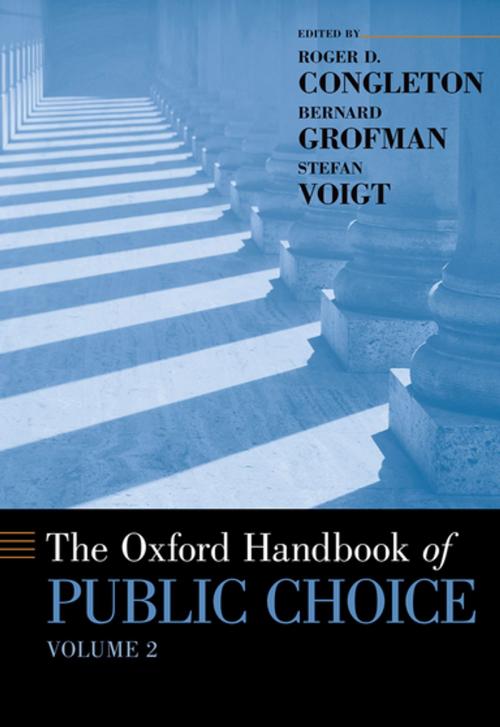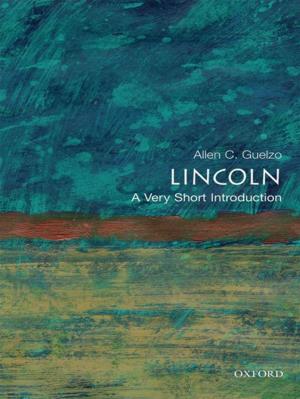The Oxford Handbook of Public Choice, Volume 2
Nonfiction, Social & Cultural Studies, Political Science, Politics, Economic Conditions, Business & Finance, Economics| Author: | ISBN: | 9780190469795 | |
| Publisher: | Oxford University Press | Publication: | December 14, 2018 |
| Imprint: | Oxford University Press | Language: | English |
| Author: | |
| ISBN: | 9780190469795 |
| Publisher: | Oxford University Press |
| Publication: | December 14, 2018 |
| Imprint: | Oxford University Press |
| Language: | English |
The Oxford Handbook of Public Choice provides a comprehensive overview of the research in economics, political science, law, and sociology that has generated considerable insight into the politics of democratic and authoritarian systems as well as the influence of different institutional frameworks on incentives and outcomes. The result is an improved understanding of public policy, public finance, industrial organization, and macroeconomics as the combination of political and economic analysis shed light on how various interests compete both within a given rules of the games and, at times, to change the rules. These volumes include analytical surveys, syntheses, and general overviews of the many subfields of public choice focusing on interesting, important, and at times contentious issues. Throughout the focus is on enhancing understanding how political and economic systems act and interact, and how they might be improved. Both volumes combine methodological analysis with substantive overviews of key topics. This second volume examines constitutional political economy and also various applications, including public policy, international relations, and the study of history, as well as methodological and measurement issues. Throughout both volumes important analytical concepts and tools are discussed, including their application to substantive topics. Readers will gain increased understanding of rational choice and its implications for collective action; various explanations of voting, including economic and expressive; the role of taxation and finance in government dynamics; how trust and persuasion influence political outcomes; and how revolution, coups, and authoritarianism can be explained by the same set of analytical tools as enhance understanding of the various forms of democracy.
The Oxford Handbook of Public Choice provides a comprehensive overview of the research in economics, political science, law, and sociology that has generated considerable insight into the politics of democratic and authoritarian systems as well as the influence of different institutional frameworks on incentives and outcomes. The result is an improved understanding of public policy, public finance, industrial organization, and macroeconomics as the combination of political and economic analysis shed light on how various interests compete both within a given rules of the games and, at times, to change the rules. These volumes include analytical surveys, syntheses, and general overviews of the many subfields of public choice focusing on interesting, important, and at times contentious issues. Throughout the focus is on enhancing understanding how political and economic systems act and interact, and how they might be improved. Both volumes combine methodological analysis with substantive overviews of key topics. This second volume examines constitutional political economy and also various applications, including public policy, international relations, and the study of history, as well as methodological and measurement issues. Throughout both volumes important analytical concepts and tools are discussed, including their application to substantive topics. Readers will gain increased understanding of rational choice and its implications for collective action; various explanations of voting, including economic and expressive; the role of taxation and finance in government dynamics; how trust and persuasion influence political outcomes; and how revolution, coups, and authoritarianism can be explained by the same set of analytical tools as enhance understanding of the various forms of democracy.















